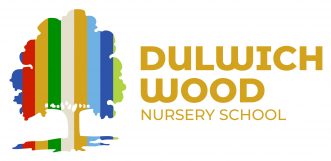At Dulwich Wood Nursery School we provide a fun, child-centred environment which stimulates children to become independent learners. We provide a well-resourced, exciting and challenging curriculum, which promotes active learning through play.
The Nursery is staffed by qualified teachers and Early Years Practitioners who plan and work together as a team. We plan for all of the children using the National Early Years Foundation Stage Curriculum (EYFS).
Our curriculum takes into account the four principles of the EYFS which state that :
- All children are unique and competent learners.
- Children learn to be independent by building positive relationships.
- The nursery environment should be secure and support learning in every way.
- Children learn at different rates and all areas of learning are important and inter-connected.
The Early Years Foundation Stage includes seven areas of learning and development with three prime areas. As children move into reception classes they will still be working towards ‘The Early Learning Goals’ set out in the EYFS so there will be continuity for the children through their transition into primary school. We provide a firm foundation on which to build future academic, social and emotional success.
Personal, Social and Emotional Development (prime)
Successful personal, social and emotional development is critical for children in all aspects of their life and gives them the best opportunity for success in all other areas of learning.
At Dulwich Wood Nursery School, we aim to provide the experiences and support to enable children to develop a positive sense of self. Children will learn to respect themselves and others, learn about developing relationships, develop a positive attitude to learning and have opportunities for problem solving.

Communication and Language (prime)
All aspects of speaking and listening are planned for in all areas of the curriculum and the children are supported to become confident communicators. Opportunities are provided to support their developing vocabulary, as they learn to communicate with others in the nursery, ask questions, comment on activities and recall experiences.

Physical Development (prime)
Physical development in the Early Years Foundation Stage is about improving skills of coordination, control, manipulation, and movement.

Literacy
Reading and writing will be experienced in all areas of the curriculum. Children enjoy sharing books, story telling, mark making and playing with letters and sounds in a lively and stimulating way.

Mathematics
This area of learning includes counting, sorting, matching, seeking pattern, working with numbers, shapes, space and measure.
Mathematical understanding will be developed through stories, songs, games and imaginative play so that children enjoy using and experimenting with numbers.

Understanding the World
In this area of learning, the children are developing the crucial knowledge, skills and understanding that help them to make sense of the world.
This forms the foundation for later work in science, design and technology, history, geography and information and communication technology (ICT).

Expressive Arts and Design
Imagination is fundamental to successful learning. Being imaginative enables children to make connections between one area of learning and another and therefore extend their understanding. This area of learning includes art and crafts, music, dance, and role play.

Outdoor Learning
Our children move freely between the indoor rooms and our garden. We are passionate about outdoor play because it allows children to …..
- be nosier, messier and become involved in larger play than they can indoors
- be physically challenged and develop coordination
- express themselves and gain a positive sense of well-being
- become resilient to life, develop confidence and self esteem
- have space and freedom to move all their muscles
- develop play and learning which is memorable
- experience multi-sensory learning
- develop independence and their preferred ways of learning.

